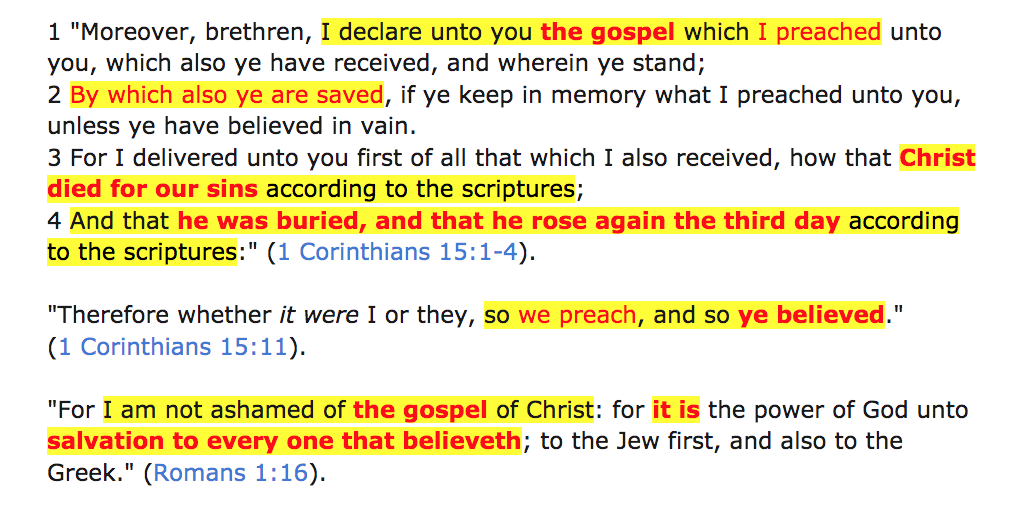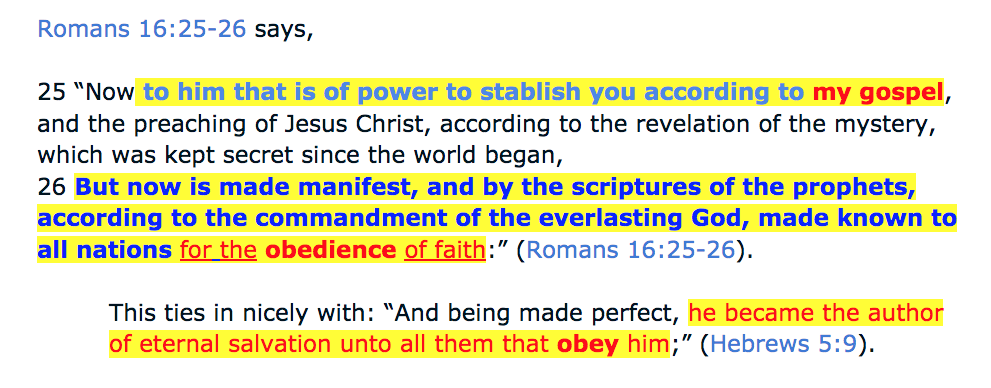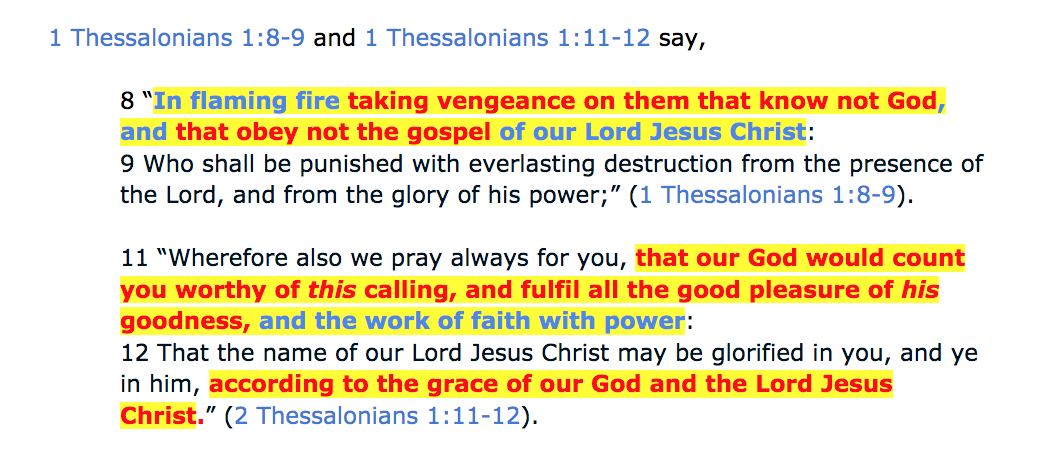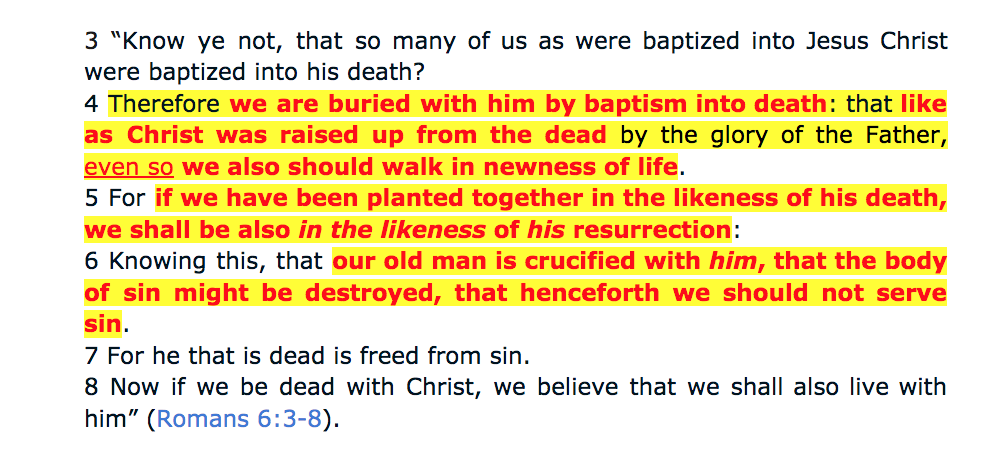In Deuteronomy 4:2, it is a sin to add to or subtract from the Law, and Jesus was sinless, therefore he did not make any changes to it. He was not in disagreement with what the Father had commanded. Whenever Jesus directly quoted Scripture, he proceeded it by saying "it is written", but when he was quoting from what the people of his day had heard being taught against Scripture, he proceeded it by saying "you have heard that it was said", so his emphasis on the different from of communication is important. He was not speaking against what was written, but rather he was proceeding to fulfill the Law by correcting what was wrongly being taught about it and by teaching how to correctly understand and obey it as it was originally intended.
The New Way (by Jesus) says:
"But I say unto you, That ye resist not evil: but whosoever shall smite thee on thy right cheek, turn to him the other also." (Matthew 5:39).
"An eye for an eye" is still a good guideline for judges to make sure that the punishment in not greater than the crime, however, it was a guideline given only to judges and was not intended to be use in personal situations to justify taking vengeance into our own hands. In such situations, we are told not to repay in kind (Proverbs 20:22, 24:29).
The New Way (by Jesus) says:
"But I say unto you, That whosoever is angry with his brother without a cause shall be in danger of the judgment: and whosoever shall say to his brother, Raca, shall be in danger of the council: but whosoever shall say, Thou fool, shall be in danger of hell fire." (Matthew 5:22).
In Leviticus 19:17, we are told not to hate our brother in our heart.
The New Way (by Jesus) says:
34 "But I say unto you, Swear not at all; neither by heaven; for it is God's throne:
35 Nor by the earth; for it is his footstool: neither by Jerusalem; for it is the city of the great King.
36 Neither shalt thou swear by thy head, because thou canst not make one hair white or black.
37 But let your communication be, Yea, yea; Nay, nay: for whatsoever is more than these cometh of evil." (Matthew 5:34-37).
Leviticus 19:12 You shall not swear by my name falsely, and so profane the name of your God: I am the Lord.
Someone who is focused on the spirit of this law will understand what we are not to swear falsely, but someone who was focused on the letter of this law exactly how it was written would understand that we can swear falsely as long as we don't do so in God's name, which is the heart of the issue that Jesus was speaking against in verses 34-37, where the Pharisees were swearing by something other than God's name in order to add weight to their promise while leaving room for them to back out of it.
The New Way (by Jesus) says:
"But I say unto you, Love your enemies, bless them that curse you, do good to them that hate you, and pray for them which despitefully use you, and persecute you;" (Matthew 5:44).
Note: Yes, I am aware that the Old Way (Old Testament) also teaches to love one's enemies (Exodus 23:4-5) (Proverbs 25:21), but this was in context to their own Israelite people, and not pagan nations. Pagan nations were to be destroyed when God commanded the Israelites to destroy them. But Jesus taught a radically different way. Love your enemies, and do good to them that hate you, and to pray for those who persecute you.
Your note beat me to a couple verses that I was going to quote, but I wouldn't say it was only the Israelite people:
Deuteronomy 23:7 “You shall not abhor an Edomite, for he is your brother. You shall not abhor an Egyptian, because you were a sojourner in his land. 8 Children born to them in the third generation may enter the assembly of the Lord.
In Leviticus 19:18, it says that we should love our neighbor as ourselves and in Leviticus 19:34, we should love the stranger as ourselves. They notably do not instruct us to hate our enemies as Matthew 5:43 states, which is the clearest indication that Jesus was not speaking against what was written.
The New Way (by Jesus) says:
"He that is without sin among you, let him first cast a stone at her. " (John 8:7).
John 8:1-12 is an example of Jesus acting in accordance with the Law requires. There was no judge to pronounce a sentence (
Deuteronomy 19:17-21), there was no man accused (
Leviticus 20:10), he didn't have any witnesses to examine (
Numbers 35:30,
Deuteronomy 19:15), and he did not have a confession, so if he had condemned her, then he would have acted in violation of the Law. Just a few verses later Jesus said that he judged no one (
John 8:15) and he also said that he came not to judge (
John 12:47), so he did not exercise authority as a magistrate and did not condemn her, but he did recognize her action as sin, and told her to go and sin no more.
Yet, the New Covenant says this about circumcision:
"Behold, I Paul say unto you, that if ye be circumcised, Christ shall profit you nothing."
(Galatians 5:2).
Either there are right and wrong reasons for someone becoming circumcised or Paul caused Christ to be of no value to Timothy in Acts 16:3 and Christ is of no value to roughly 80% of the men in the US who are circumcised. In 1 Corinthians 7:19, Paul said that circumcision has no value, what matters is obeying the commandments of God, however, he also said in Romans 3:1-2, that circumcision has has much value in every day, so the issue is that the value of circumcision is entirely derived from whether someone obeys God's Law (Romans 2:25). The way to recognize that a Gentile has a circumcised heart is by observing their obedience to God's Law (Romans 2:26), which is the same way to tell for a Jew (Deuteronomy 10:12-16). We should be careful not to take something that was only against becoming circumcised for the wrong reasons as being against obeying what God has commanded.
“For the law was given by Moses, but grace and truth came by Jesus Christ.”
(John 1:17).
In John 1:16-17, it says grace upon grace and verse 17 lists both Christ and the Mosaic Law as examples of this, so the grace of Christ was added upon the grace of the Law. Verse 17 does not contain the word "but" in the Greek.
Jesus said,
"Think not that I am come to destroy the law, or the prophets: I am not come to destroy, but to fulfil." (Matthew 5:17).
Jesus came not to abolish the Law (in the sense of destroying all forms of Law), but Jesus came to fulfill the Law (i.e. to nail to the cross those ordinances that were against us [like the Old Covenant ceremonial laws], and Jesus came to give us a more fulfilled and perfect way of obeying God via the commands that come directly from Him and His followers). For Jesus offered a more perfect way of loving God, and loving our neighbor (Which of course is only possible via if we are first saved by God's grace through faith).
Jesus said he came to fulfill the Law in contrast with abolishing it, so you should not interpret that as meaning essentially the same thing. "To fulfill the Law" means "to cause God's will (as made known in the Law) to be obeyed as it should be" (NAS Greek Lexicon pleroo 2c3). After Jesus said he came to fulfill the Law in Matthew 5, this is precisely what he then proceeded to do six times throughout the rest of the chapter by teaching how to correctly understand and obey it. In Galatians 5:14, loving your neighbor fulfills the entire Law, so Jesus was one of countless people who have done that. In Galatians 6:2 says that bearing one another's burdens fulfills the Law of Christ, so you should interpret it in the same way as fulfilling the Law and the Prophets, namely obeying it as it should be, not as doing away with it. In Romans 15:18-19, it says that Paul fulfilled the Gospel, which again referred to causing Gentiles to become fully obedient to it in word and in deed, not to doing away with it.
While it is true that we are under the New Covenant and not the Mosaic Covenant, we are nevertheless still under the same God with the same nature and therefore the same instructions for how to walk in the same ways and express the same character traits. For example, God's righteousness is eternal, so any instructions that God has ever given for how to act in accordance with His righteousness are eternally valid regardless of which covenant we are under, but as part of the New Covenant, we are told that those who do not follow those instructions are not children of God (1 John 3:10).
Sin was in the world before the Law was given (Romans 5:13), so there was nothing that became sinful or righteous when the Law was given, but rather the Law revealed what has always been and will always be the way to do that. For example, in Genesis 39:9, Joseph knew that it was a sin to commit adultery long before the Mosaic Law was given, so it did not become sinful when the Mosaic Covenant was made or cease to be sinful after it has become obsolete. The New Covenant involves God putting His Law in our minds and writing it on our hearts (Jeremiah 31:33), so while the Mosaic Covenant as becoming obsolete, God's eternal righteousness and righteous Law did not become obsolete along with it.
”Wherefore, my brethren, ye also are become dead to the law by the body of Christ; that ye should be married to another, even to him who is raised from the dead, that we should bring forth fruit unto God.” (Romans 7:4).
At no point was the women ever set free from having to obey God's Law, but rather with the death of her husband she was only set free from the aspect of the Law that would cause her to commit adultery if she were to live with other man while her husband was still alive. If after her husband died she were to get married to another man, then she would still be required to refrain from committing adultery. It wouldn't make any sense to interpret that verse as us needing to be set free from God's instructions for how to bear fruit for Him in order to be free to bear fruit for Him.
"But now we are delivered from the law, that being dead wherein we were held; that we should serve in newness of spirit, and not in the oldness of the letter." (Romans 7:6).
In Romans 7:22-23, Paul said that he delighted in obeying God's Law, but contrasted that with the law of sin, which held him captive. If Romans 7:5-6 were referring to God's Law, then that would mean that he delighted in stirring up sinful passions to bear fruit unto death and that he delighted in being held captive, which would be absurd, but rather it is the law of sin that Paul described as holding him captive.
“By abolishing in His [own crucified] flesh the enmity [caused by] the Law with its decrees and ordinances [which He annulled]; that He from the two might create in Himself one new man [one new quality of humanity out of the two], so making peace.” (Ephesians 2:15) (AMPC).
Ephesians 2:15 is referring to a law that is temporary, but God's Law is eternal, so it could not be referring to God's Law. God did not make any mistakes that He needed to sent Jesus to correct, so He had no need to break down His own laws. Furthermore, God did not give any laws for the purpose of creating a dividing wall of hostility, but rather His Law instructs us to love our neighbor as ourselves.
"The old [former] rule [commandment; regulation] is now set aside [nullified; abolished], because it was weak and useless [ineffective]." (Hebrews 7:18) (EXB).
When God has commanded something and you think that the author of Hebrews spoke against what God has commanded, then you have a decision to make about which one has the higher authority and which one to follow. In Deuteronomy 13:4-5, the way that God instructed His people to determine whether someone was a false prophet who was not speaking for Him was if they taught against obeying His Law. So if you think that the author of Hebrews did that, then according to God, you should disregard everything that he said. However, the author of Hebrews was not an enemy of God, so he did not do that.
“And certain men which came down from Judaea taught the brethren, and said, Except ye be circumcised after the manner of Moses, ye cannot be saved.” (Acts of the Apostles 15:1)
The problem with Acts 15:1 was that the purpose that God commanded circumcision was never in order to become saved, so the issue was that circumcision was being used for a man-made purpose that went above and beyond the purpose that God commanded it for. So the Jerusalem Council upheld God's Law by correctly ruling against that requirement, and a ruling against obeying something that God never commanded should not be mistaken as being a ruling against obeying what God has commanded.
The Jerusalem Council did not have the authority to countermand God or to tell anyone not to obey any of His laws, nor did they do so, nor should they be followed instead of God even if you think that is what they were doing.
When you have a large number of Gentile believers coming out of paganism who are unfamiliar with Christianity, then in order to avoid overwhelming them, it becomes important to be on the same page about which things need to be taught right away and which things can be taught overtime as they mature in their faith. So the four laws listed in Acts 15:19-21 are a starting point, which they excused in verse 21 by saying that they would continue to learn about how to obey Moses by hearing him taught every Sabbath in the synagogues.
(2 Corinthians 3:7-11).
“But their minds were blinded: for until this day remaineth the same vail untaken away in the reading of the old testament; which vail is done away in Christ.” (2 Corinthians 3:14).
In Deuteronomy 30:11-20, God said that His Law was not too difficult to obey and that obedience brings life and a blessing while disobedience brings death and a curse, so the fact that the Law is a ministry of death for those who refuse to obey it is not a very good reason to do that.
The Mosaic Law brings us to Christ because everything in it teaches us about who he is, how to walk as he walked, and how to grow in a relationship with him. This is what the veil was preventing those who read the Law from seeing, but it is a veil that works both ways that prevents those who read the NT from seeing the same thing.







